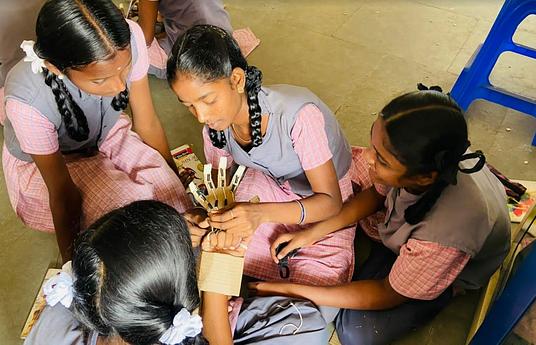After six years of sponsorships for orphans in boarding schools in Uganda, the first generation graduated in 2013 with good grades but drowned in youth unemployment in Uganda. In an open space dialogue, it became clear that a space is needed where young people become job creators instead of job seekers and the first SINA Community was co-created.
Marginalized youth and refugees are in charge of their own future and actively create solutions to the most pressing social and environmental challenges. A five-step empowerment framework supports the youths' self-development of personal and professional skills to develop solutions and social enterprises. SINA is built on the intrinsic motivation and transformative. Students (called "scholars") take responsibility for themselves; handle community tasks such as accounting, logistics, outreach, and everything needed to run the community; and work with each other through life-coaching and mentorship. Everyone takes up dynamic roles to continuously grow in their abilities. Within this purpose-driven work, decision-making goes beyond hierarchies or consensus, and power is distributed using Holacracy. SINA disrupts an education of pre-defined and already solved problems by allowing its scholars to continuously create and test out real-life solutions to problems without answers.
The SINA Framework has spread to currently nine locations. Five of the SINAs are located in refugee camps. In 2016 a group of refugees founded SINA, joined and nine months later decided to make the replication of SINA their social enterprise. This proved that the SINA Framework is scalable through the beneficiaries themselves. New replications are currently ongoing for Tanzania and Cape Verde and in partnership with two vocational schools in rural Uganda, which see their graduates lost with a certificate but unable to find a job. Alumni establishing a SINA community next to the vocational centre will allow the youth to create their own jobs through social entrepreneurship. The goal in the coming years is to scale SINA to further vocational schools in rural areas.
A replication is initiated by 3 youths from a local community or vocational school who go through SINA and experience a profound personal transformation and are equipped with all skills, tools and experience necessary for replication to apply the SINA Framework on their own. The new SINA is locally owned and governed by self-organization and is part of the SINA "community of communities".
.jpg)


